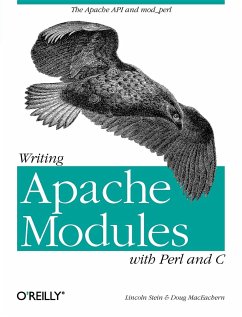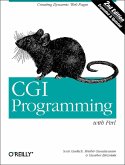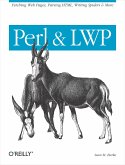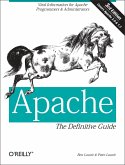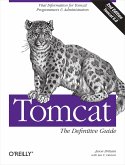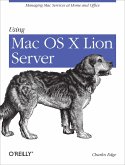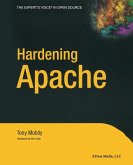Apache is the most popular web server on the Internet because it is free, reliable, and extensible. The availability of the source code and the modular design of Apache makes it possible to extend web server functionality through the Apache API.
For the most part, however, the Apache API has only been available to C programmers, and requires rebuilding the Apache server from source. mod_perl, the popular Apache module used primarily for enhanced CGI performance, changed all that by making the Apache API available to Perl programmers. With mod_perl, it becomes simple to develop Apache modules with Perl and install them without having to rebuild the web server.
Writing Apache Modules with Perl and C shows how to extend web server capabilities regardless of whether the programming language is Perl or C. The book explains the design of Apache, mod_perl, and the Apache API. It then demonstrates how to use them to perform for tasks like the following:
* Rewriting CGI scripts as Apache modules to vastly improve performance
* Server-side filtering of HTML documents, to embed special markup or code (much like SSI) * Enhancing server log functionality
* Converting file formats on the fly * Implementing dynamic navigation bars
* Incorporating database access into CGI scripts
* Customizing access control and authorization to block robots or to use an external database for passwords
The authors are Lincoln Stein and Doug MacEachern. Lincoln is the successful author of How to Set Up and Maintain a World Wide web Site and the developer of the widely used Perl CGI.pm module. Doug is a consultant and the creator of the innovative mod_perl Apache module.
Hinweis: Dieser Artikel kann nur an eine deutsche Lieferadresse ausgeliefert werden.
For the most part, however, the Apache API has only been available to C programmers, and requires rebuilding the Apache server from source. mod_perl, the popular Apache module used primarily for enhanced CGI performance, changed all that by making the Apache API available to Perl programmers. With mod_perl, it becomes simple to develop Apache modules with Perl and install them without having to rebuild the web server.
Writing Apache Modules with Perl and C shows how to extend web server capabilities regardless of whether the programming language is Perl or C. The book explains the design of Apache, mod_perl, and the Apache API. It then demonstrates how to use them to perform for tasks like the following:
* Rewriting CGI scripts as Apache modules to vastly improve performance
* Server-side filtering of HTML documents, to embed special markup or code (much like SSI) * Enhancing server log functionality
* Converting file formats on the fly * Implementing dynamic navigation bars
* Incorporating database access into CGI scripts
* Customizing access control and authorization to block robots or to use an external database for passwords
The authors are Lincoln Stein and Doug MacEachern. Lincoln is the successful author of How to Set Up and Maintain a World Wide web Site and the developer of the widely used Perl CGI.pm module. Doug is a consultant and the creator of the innovative mod_perl Apache module.
Hinweis: Dieser Artikel kann nur an eine deutsche Lieferadresse ausgeliefert werden.

